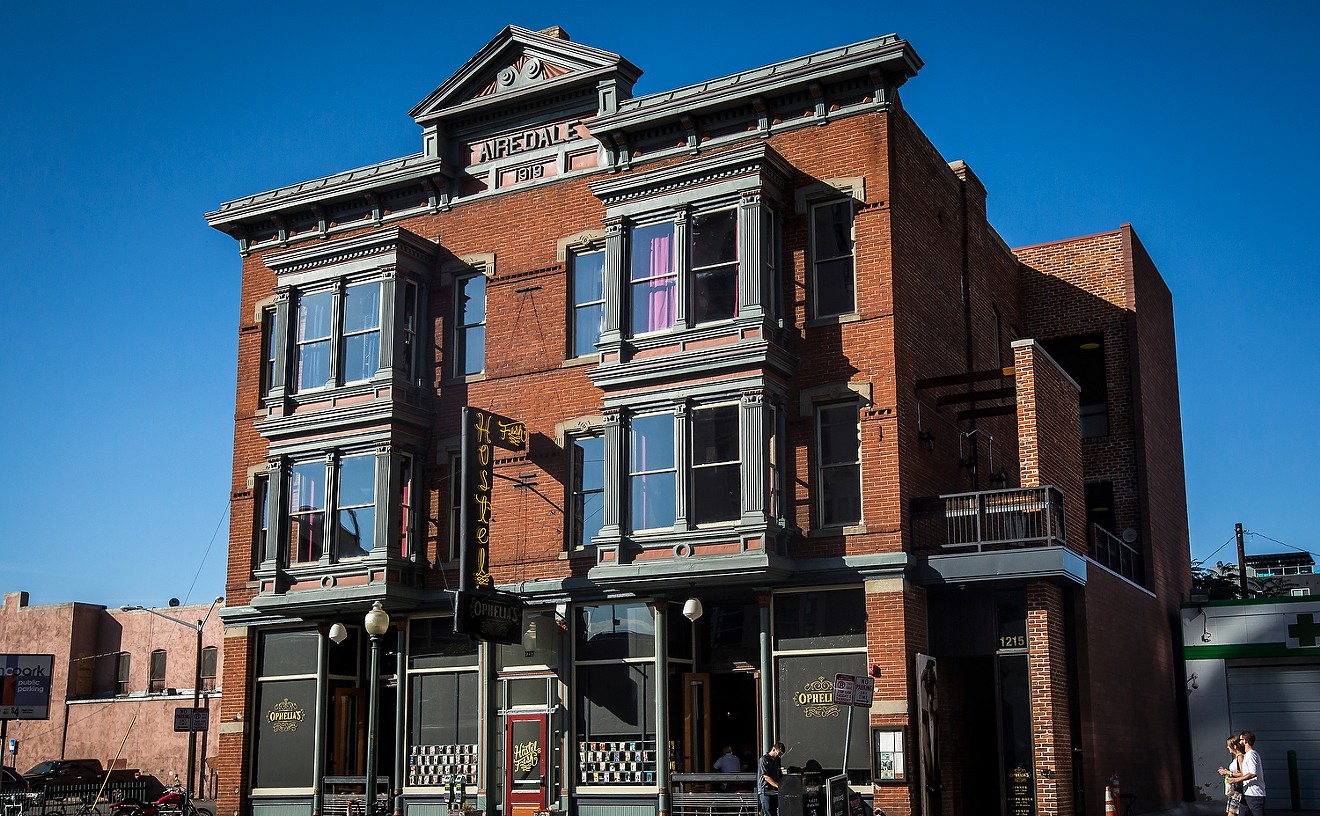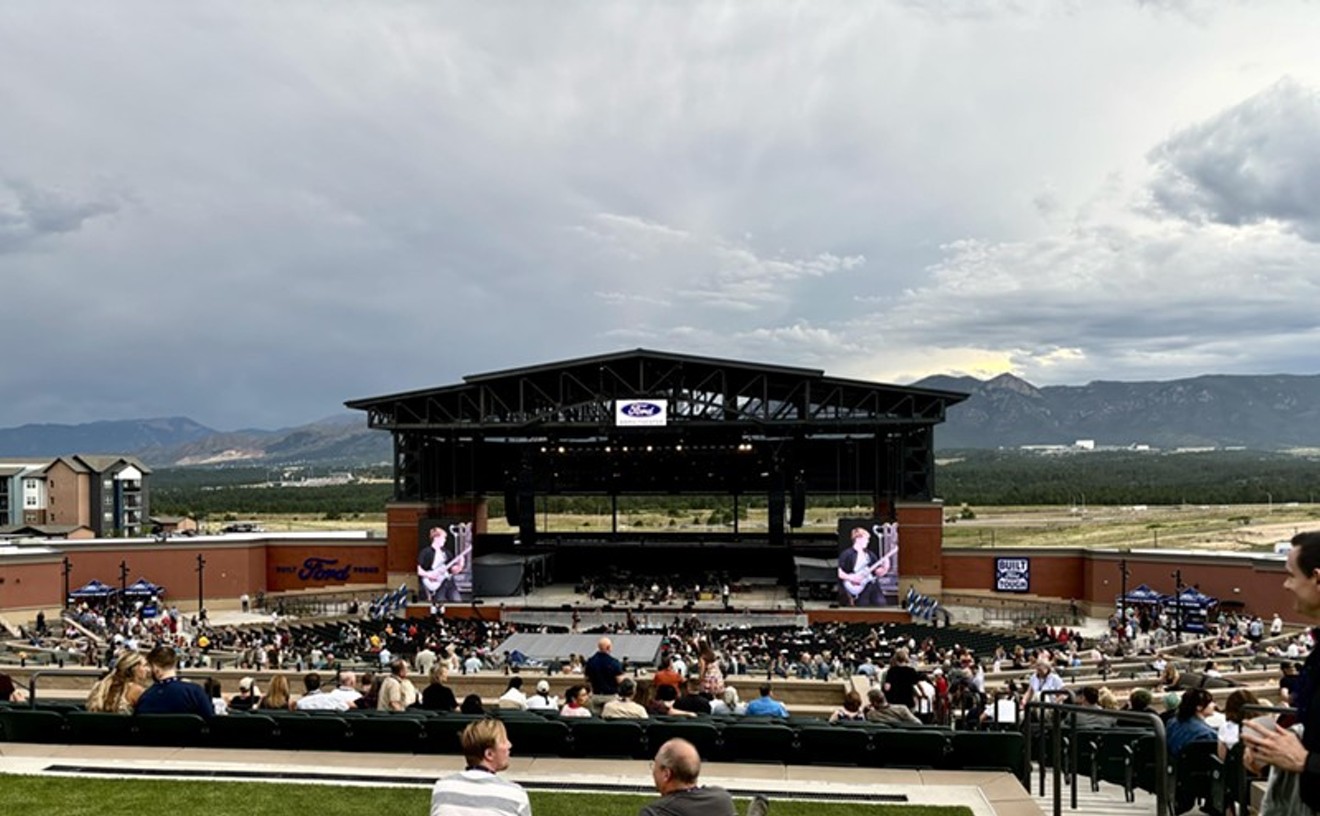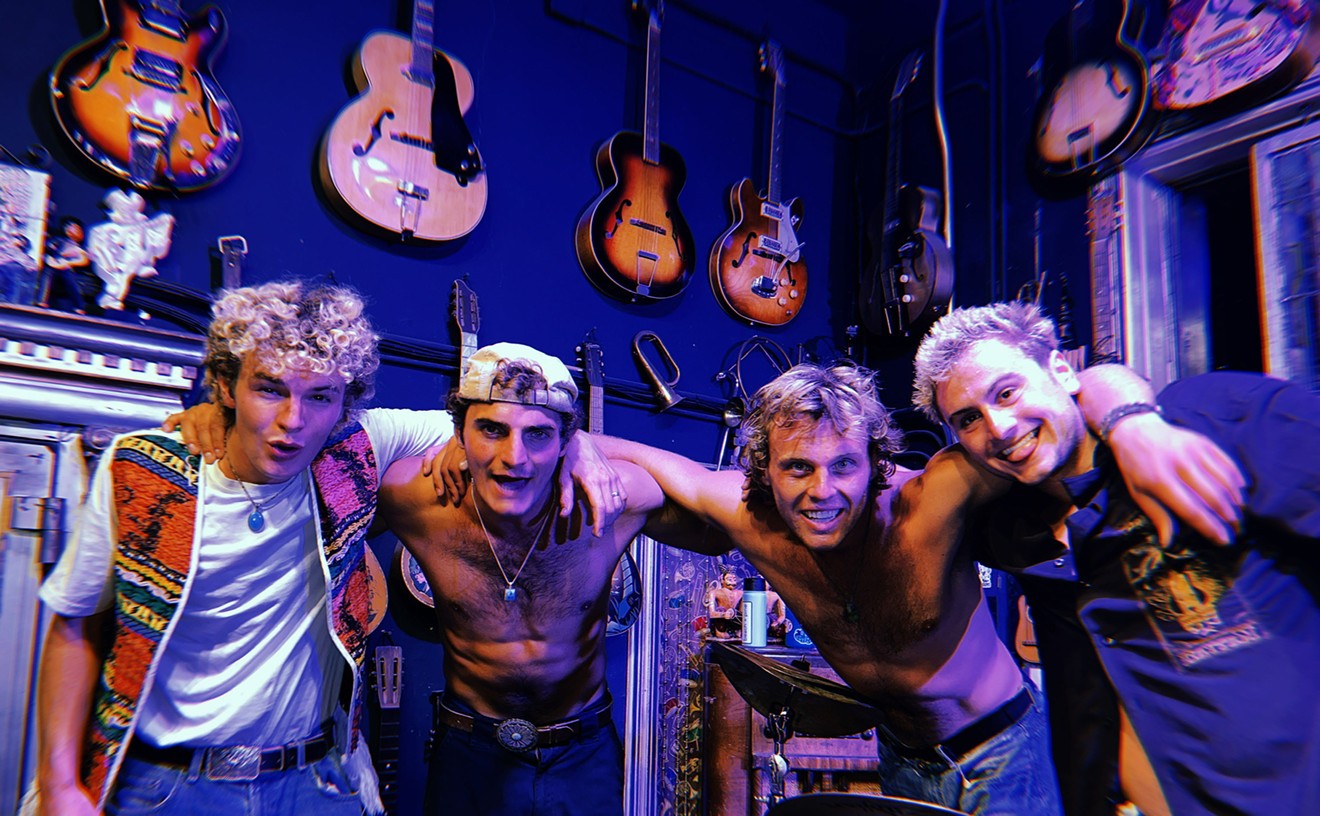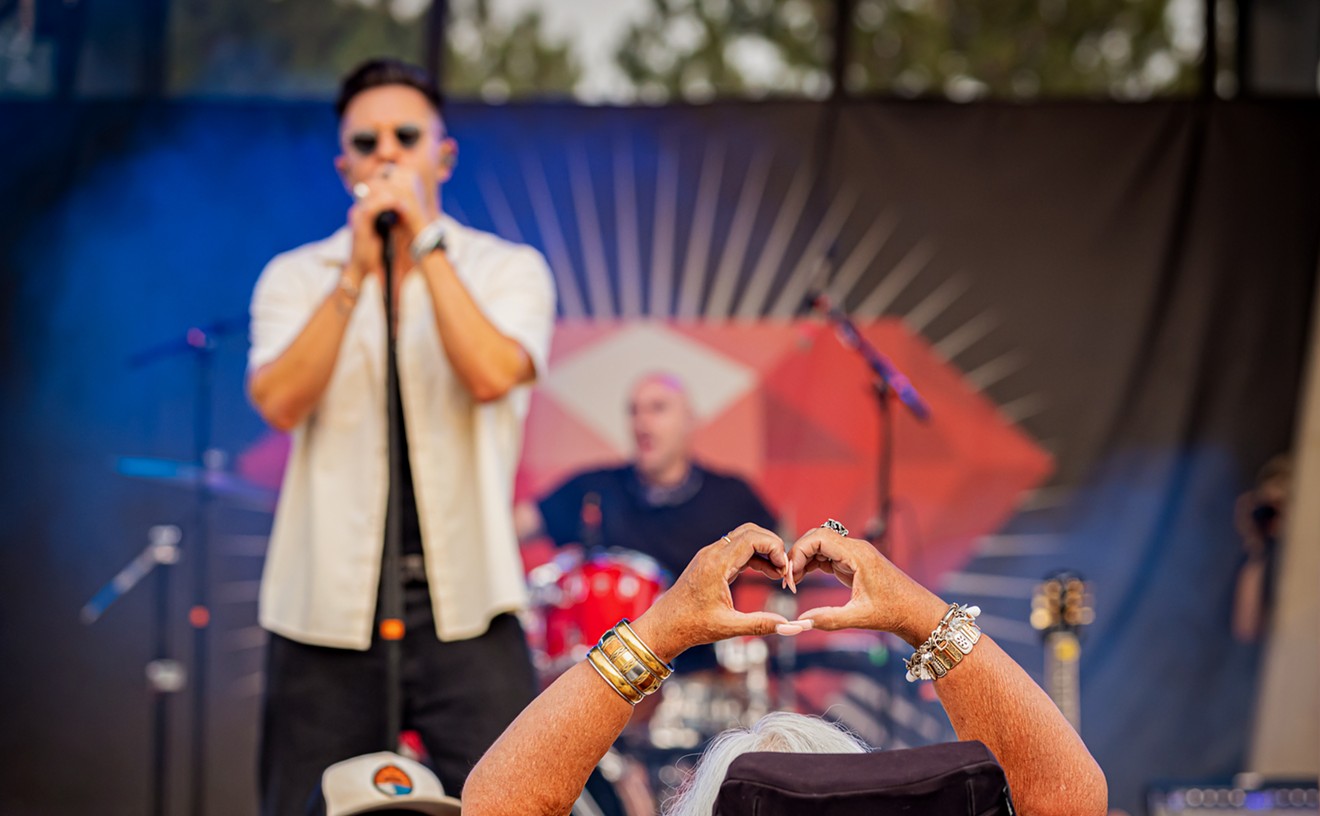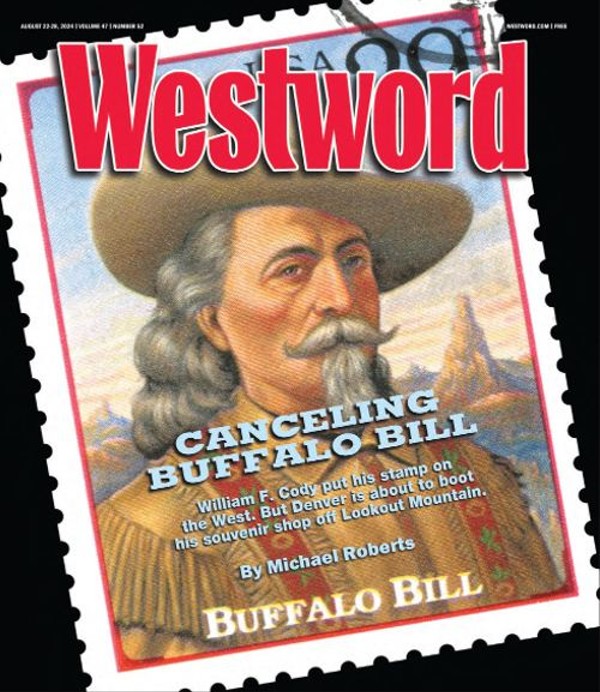Danielle de Picciotto is a multimedia artist who co-founded Berlin’s long-running and highly influential Love Parade electronic-music festival. Her husband, Alexander Hacke, is the bassist for legendary and foundational industrial band Einstürzende Neubauten. The two are currently touring together, presenting a unique combination of music, film, visual art and literature. Attendees at this week’s Denver stop can expect Picciotto and Hacke to perform some music from her solo album Tacoma, his solo album Perseverantia, and a reading of Picciotto’s beautifully and intricately illustrated graphic diary, We Are Gypsies Now. We caught up with Picciotto via e-mail to discuss the impact that gentrification has had on artists and culture in general.
Tom Murphy: What has been your experience of gentrification in Berlin, and how has it affected your ability to make a living as even a well-known artist?
Danielle de Piccotto: When I moved to Berlin in ’87, it was the most creative place I had ever experienced. Coming from NYC, which was pretty active as well, Berlin in comparison was not dangerous, and living costs were very cheap. I think the fact that artists could work without having to worry about money made it possible to delve deeper into content material instead of having to concentrate on doing jobs on the side, and this helped create an unparalleled creativity and style. Without money problems, there was no competition for jobs, and a communal feeling of sitting in the same boat and sticking together was everywhere. Artists from different genres worked together, inspiring each other in new areas — which, again, helped to create unusual collaborations. The fact that Berlin was surrounded by a wall and was very poor also kept the industry from being interested, so it was not really part of the “trendy” outside world, which kept everything very individual and handmade.
As soon as the industry moved in — around 1995, after the fall of the wall — they started offering people money, and the competition started. Not only did people not work together in the same way anymore, [but] they also started making allowances within their style so the companies would like it. The work became less radical. To be able to survive the rising rents and general costs, they started selling their ideas to companies that would then make them into mass-market products.
Gentrification is a way of making everything look the same and marketable for the industry. They do not want things that do not speak to thousands of potential buyers, so the themes have to stay mediocre and easy to understand — no rough edges or questionable thoughts allowed. Berlin was [rebellious] in the ’80s and early ’90s, with lots of “un-hip” outsiders. This influenced the strength of the culture immensely. Now it has become one of the trendiest cities in the world, and although you can party all night and drink on the streets, the cafes you go to visit are interchangeable with ones in New York, L.A. or Hong Kong. They are sponsored by companies that want to market chains. This has completely changed Berlin’s output, quality and character. But this is not only a Berlin problem — most larger cities are facing the same challenges. It is a global phenomenon that industry is flattening the culture everywhere and turning the world into Aldous Huxley’s Brave New World in order to make the highest profit possible.
Economic downturns always disproportionately impact the poor and those subsisting on the edges of society, as well as the creative class. But the current era feels especially odious in that regard. What do you think accounts for this, and what do you see as at least part of a possible solution?
I think the problem is that population has boomed so much that we have gotten to be a mass culture, and because of that, [we] get treated like numbers. In a small town, where everybody knows each other, people cannot treat others that way. It is interesting how humans become if they are anonymous — either completely powerless or sadistic beasts. Because of the increase in population, our society is becoming more and more anonymous. Because of this development, large groups of lower-income people, political refugees or third-world nations have seemingly become faceless and do not receive the basic human respect everybody deserves. I think the answer to turning our world into a human place is to become more personable — to go towards individual and personal experiences and collaborations. [That’s] the exact opposite of what the industry wants, and how to make that happen nowadays with the development of the Internet is a real challenge.

Audio By Carbonatix
[
{
"name": "Air - MediumRectangle - Inline Content - Mobile Display Size",
"component": "12017618",
"insertPoint": "2",
"requiredCountToDisplay": "2",
"watchElement": ".fdn-content-body",
"astAdList": [
{
"adType": "rectangle",
"displayTargets": "mobile"
}
]
},{
"name": "Editor Picks",
"component": "17242653",
"insertPoint": "4",
"requiredCountToDisplay": "1",
"watchElement": ".fdn-content-body",
"astAdList": [
{
"adType": "rectangle",
"displayTargets": "desktop|tablet"
},{
"adType": "rectangle",
"displayTargets": "desktop|tablet|mobile"
}
]
},{
"name": "Inline Links",
"component": "18838239",
"insertPoint": "8th",
"startingPoint": 8,
"requiredCountToDisplay": "7",
"maxInsertions": 25
},{
"name": "Air - MediumRectangle - Combo - Inline Content",
"component": "17261320",
"insertPoint": "8th",
"startingPoint": 8,
"requiredCountToDisplay": "7",
"maxInsertions": 25,
"watchElement": ".fdn-content-body",
"astAdList": [
{
"adType": "rectangle",
"displayTargets": "desktop|tablet"
},{
"adType": "rectangle",
"displayTargets": "desktop|tablet|mobile"
}
]
},{
"name": "Inline Links",
"component": "18838239",
"insertPoint": "8th",
"startingPoint": 12,
"requiredCountToDisplay": "11",
"maxInsertions": 25
},{
"name": "Air - Leaderboard Tower - Combo - Inline Content",
"component": "17261321",
"insertPoint": "8th",
"startingPoint": 12,
"requiredCountToDisplay": "11",
"maxInsertions": 25,
"watchElement": ".fdn-content-body",
"astAdList": [
{
"adType": "leaderboardInlineContent",
"displayTargets": "desktop|tablet"
},{
"adType": "tower",
"displayTargets": "mobile"
}
]
}
]





